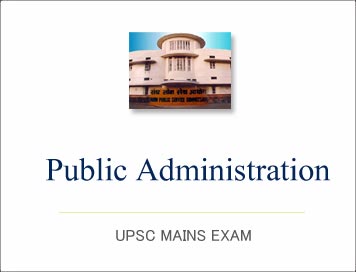Public Administration Papers Topic : District Administration Since Independence

Public Administration Papers Topic : District Administration Since Independence
- “District Administration is like a small tortoise carrying the load of an elephant”. Discuss (20 marks 2008)
- "The District Collector, the Additional Deputy Commissioner and Sub-Divisional Officer, have virtually become ‘officer-in-attendance’ and have lost initiative and independence of judgement.” Comment.(60 marks 2006)
- "The district officer as a chief agent and representative of state serves as a channel of communication between the Government and the residents of the district." Explain. (30 marks 2004)
- "One of the most distinctive characteristics of Indian Administrative Service is its multi-purpose character”.Comment. (20 marks 2005)
- "The primary emphasis in District Administration has to be on implementation of development programmes in cooperation with active support of people." Elucidate. - (05/1I/3b/30) (30 marks 2005)
- "The District Collector is an overburdened officer due to the expansion and increasing developmental activities." Comment. (20 marks 2005)
- "Indian federalism is passing through a state of potential maturity." Discuss this statement in the context of the views of the Commission on Centre - State Relations (Justice M. M. Punchhi).(30 marks 2011)
- "Many of the programmes of development being implemented at the State and the Local level have been initiated or financed by the Union Government. This has transformed the nature of Indian' federalism." Critically examine this assessment. (30 marks 2009)
- NGOs demand greater autonomy from the 5. State and are now 'new actors' in development. How effective are they as instruments of decentralisation and debureaucratisation ? Critically ev aluate. (30 marks 2012)
- Explain the emerging ambiguity in respect of the development role of the District Collector in the wake of the 73rd Constitutional Amendment (12 marks 2012)
- “Reducing the size (geographical area) of the district will provide relief to the overburdened and overworked collector.” Comment. (10 marks 2013)
- Explain the important recommendation of V.T. Krishnamachari Committee (1962) on Indian and State Administrative Services and problems of District Administration. (10 marks 2013)
- “District Collector is a legacy of the British Raj and has largely remained insulated from the demands of contemporary professionalism.” Discuss. (10 marks 2014)
- “District Collector’s role in the development process has been overemphasized.” Comment on the statement. (10 marks 2015)
- Digitization of land records is a necessary but not sufficient precondition for ensuring transparent district administration.” Explain (10 marks 2017)
- ’District Planning Committee (DPC) has been the weakest structure in the local self-government mechanism in India .” Analyze with examples(10 marks 2017)
- “Development management advocates self-sustaining customer-friendly institutions at the district level.” Comment. (10 marks 2018)
- Climate change issues pose new challenges for district administration to be proactive.” Elaborate(20 marks 2018)
- It is observed that non-functioning of District Planning Committees is preventing the convergence of rural and urban planning needs. Do you agree? Justify. (20 Marks 2019)
- The office of the District Collector has merely become a bureau for funneling government schemes, collecting statistics and an officer on attendance for unending VIP duties. Critically examine its role in the light of the recommendations of the Second Administrative Reforms Commission. (20 Marks 2019)
- District administration is the most important unit in governance. Most of the Central and State Government schemes and programmes are directed towards the district administration. In this context, discuss the challenges and problems posed to the district administration,(20 Marks 2020)

